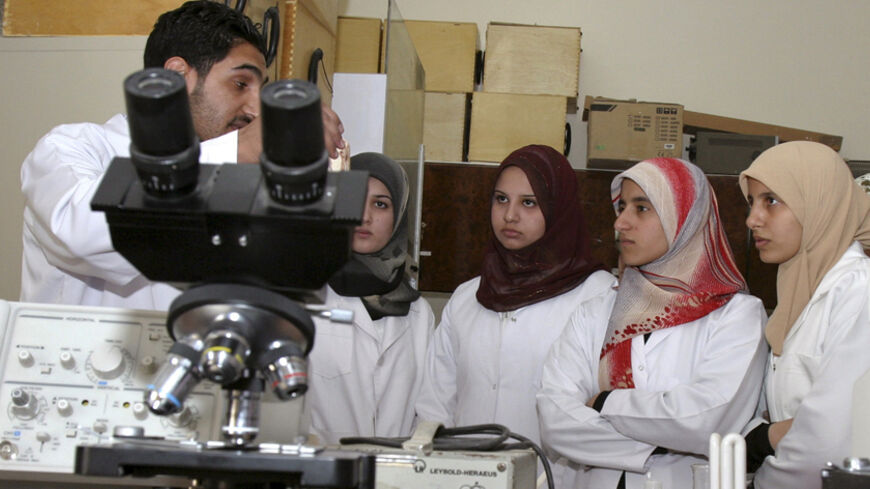BABIL, Iraq — Around 79,000 Iraqi students are getting ready to start vocational training (two-year programs leading to an associate degree) or university (four-year programs leading to a bachelor's degree), according to the Ministry of Higher Education and Scientific Research announcing the university admissions exam results for the academic year 2013-14. Many students taking their final high school exams received grades ranging from 95 to 100, which could well be the largest group of students in the world attaining such high grades.
This increase in grades, however, hinders many students’ dreams of studying medicine — for which top grades are required to be selected — at a time when Iraqi families are struggling financially to pay for, especially, their son's degree in medicine at any price, even if this requires sending him to study abroad. The number of Iraqi students studying abroad has thus increased and already reached around 14,000 in 2013.



